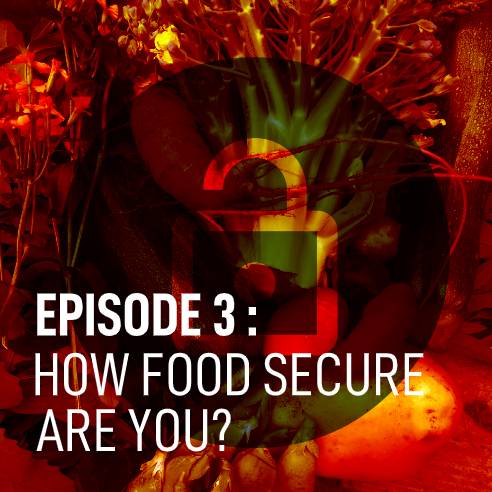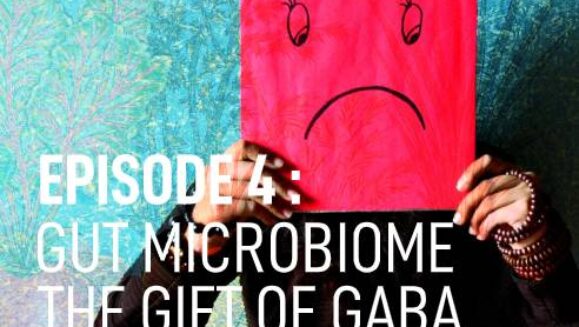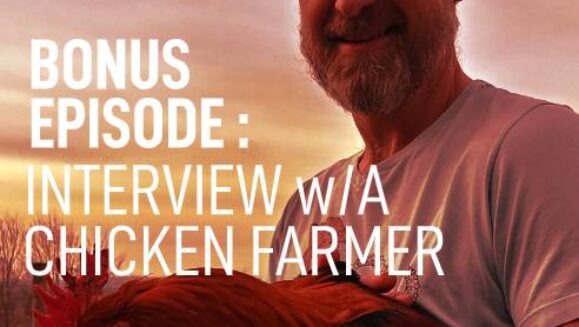Today, we’re talking about the coronavirus and food security.
How Food Secure Are YOU?
Listen in here :
I originally thought I’d do a part two to my beef with chicken…but who cares about that with the explosion of the COVID-19 coronavirus, imports from China are slowing down if not coming to a grinding halt. The gridlock is causing inflation in China and it’s causing pandemonium around the world. We haven’t felt the brunt of the fallout yet, and with agricultural imports into the US valued at $143 billion dollars (about 15-18% of our food consumption) from places like China, Canada, and Mexico, it brings one critical inquiry to the top of the heap….
How is the spread of the virus impacting our food security?
This is an important question right now, and it’s something we should all be thinking about because we have just entered the first wave of uncertainty that we will be facing for at least the next few months. Our food security is threatened, with the downturn of the economy (stock market has been seeing big drops), imports are probably going to slow down a lot more, and we are already seeing runs on the grocery stores with empty shelves, Costco is selling out of toilet paper, many stores have already sold out of necessities and this, unfortunately, is just the beginning. All the more reason to take responsibility for what gets onto your plate. So, buckle up…this one’s going to be a doozy.
So, what determines food security?
There are four things that determine how food secure you are.
- Access : food that is readily /physically present and affordable – grocery stores, restaurants, gardens, farmer’s markets
- Availability : food produced or sold into a specific region – imports, transportation, distribution
- Stability : food access that is not disturbed by war, seasonal (or other unpredictable) disturbances
- Utilization : food that is safe and will not cause harm to the consumer – perishability, non-toxic
Why food security is important…
- It can lead to malnutrition, illness and pre-mature death.
- Food insecurity can also have a large economic impact on a society. Hunger leads to a loss of productivity in the workforce, an increase in health care costs, and an increase in the cost of federal food programs (only in countries that have federal food programs).
How food secure are you?
- How much food do you have access to locally?
- What is the availability of food in the long and short term?
- How stable is your food source where you live?
- Is that food source safe from contamination?
- According to the USDA in 2018, 35.3 percent of households with incomes below the Federal poverty line were food insecure.
- A total of 11.1% of households in the US are food insecure (36.5Million people)
- Food insecurity is more common in cities & suburbs high concentration of people than in rural areas
- But just because you have more money, doesn’t mean you’re more food secure.
Spotlight on China…
- The US imported $4.6 billion in agricultural products from China in 2017
- Top imports are fresh and processed fruits and vegetables, snack foods, spices and tea
- 90% of the Vitamin C in the US comes from China – our bodies don’t make it; 78% of tilapia; 70% of apple juice; 50% of cod; 43% of processed mushrooms and 23% of garlic
- In 2014, it was discovered that China chicken producers intentionally sold expired chicken meat to restaurants
- Dog treats from China (sold at Walmart) have killed dogs due to the treats containing high levels of illegal antibiotics
- China joined the WTO in 2001 when unsafe agricultural imports began to show up in the US
- Food safety regulators in China and the United States have turned a blind eye to the growing risk of hazardous foods. U.S. food safety oversight of Chinese food processors has not remotely kept pace with the growth in imports. Though the U.S. Food and Drug Administration prevented 9,000 unsafe Chinese products from entering the country between 2006 and 2010, and not because of vigilant inspection at U.S borders and ports. The agency has very low inspection rates where less than two percent of imported produce, processed food and seafood are inspected which basically guarantees that unsafe Chinese products are making their way into American grocery stores.
- China is the largest agricultural economy in the world and one of the biggest agricultural exporters. Today, it is the world’s leading producer of many foods Americans eat: apples, tomatoes, peaches, potatoes, garlic, sweet potatoes, pears, peas, mushrooms — the list goes on and on.
- In 2017, the US imported $1.13B worth of vegetables, fruit, nuts, plants (fresh, frozen, prepared); and $1.96B worth of fish, crustaceans, mollusks, and other fresh or frozen fish products from China
Why this matters right now…? At the time of this recording….
- Distribution is slowing (and although that’s an environmental good….)
- Local and Regional legislators are threatening to shut down interstate travel
- International travel is definitely coming to a slow down
- People are being forced to be out of work, so that has an economic impact
- Reduction in income will be painful for many who are food insecure
- The best news that is coming from this is the environmental impacts…
- People are traveling less, using less gas to get around, attending fewer events, and hunkering down at home….which could result in a few more “coronavirus babies” 🙂
What you can do about it….
- Buy some seeds for planting – It’s Spring and it’s time to start a garden right now
- Work within your local community to join forces at a community garden, or use each other’s front or back yards. Share the work!
- Stock up on high calorie food essentials (rice, beans, canned goods, frozen meats, etc.)
- Don’t panic!
Remember you can also support this show in four ways. Join other supporters on Patreon, make a one-time donation or purchase some seeds from the website and listen in and share these episodes with people you love. And if you feel it, leave a review.
Listen in to the bonus interview with the Oncologist this week, and next week, we’ll be talking about that Avocado toast. Though avocados are great for a lot of things, what they go through within our food supply chain is eye opening. So, tune in for that.
That said, eat clean, eat healthy and love your food. I’ll see you on the other side of the plate. Chow!



